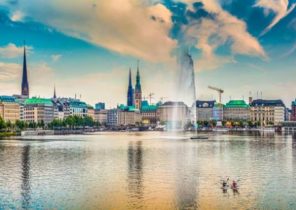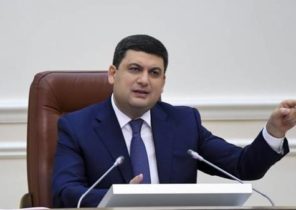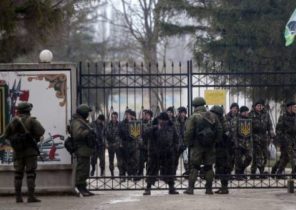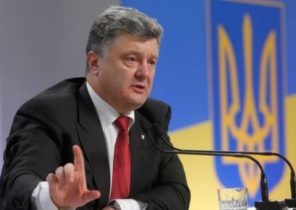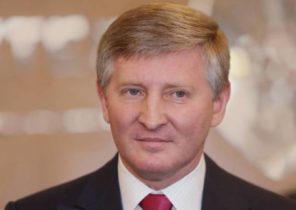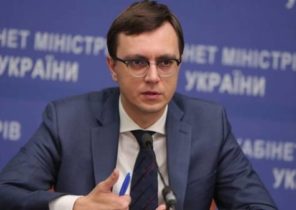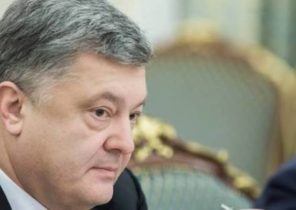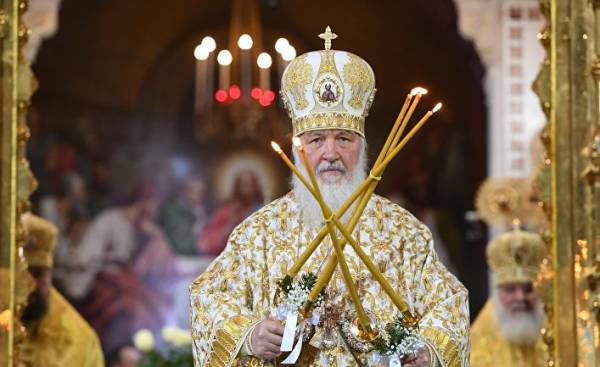
What effect has today in Russia, the Orthodox Church, and how to change its relationship with government and society? These questions were at the center of a broad public debate, which resumed with new force in recent years. The image of the oppressed atheistic power of the Church in the past, and now it acts as an ideological partner of the Russian authorities. Relations with the government became the starting point of discussions about the place of Orthodoxy in modern Russia. Anyway, topic of discussion is much broader. What role will the Church play in the historical destiny of Russia? With what force and persuasion will sound its voice, if it won’t pass the government media?
The external prosperity of the Orthodox Church is striking, however, it says nothing about her inner life. It is increasingly common to hear that 25 years after his “revival” of the Russian Church, paradoxically, is in deep crisis, comparable to what was in Soviet times. The problem is that the preaching of the gospel is no longer the core of many areas of its activities.
Of course, this point of view there are opponents. Their argument is based on the fact that the Patriarchate of Cyril (gundyaeva) is an exceptional period in the history of the Church. Cyril, an intellectual, an eloquent preacher and an accomplished diplomat (rightly) claims to be the spiritual leader of the nation. He commands respect from the conservative wing of the Church, but at the same time relentlessly continues its programme of liberal reforms.
The meeting between Cyril and the Pope
During the eight years of the Patriarchate, he held a large-scale administrative reform, which affected the whole Church, from parishes and monasteries, to the higher hierarchy. He managed to negotiate with the government on the introduction of lessons on “fundamentals of religious cultures and secular ethics”, which are the main component of the foundations of Orthodox culture. In cooperation with the Moscow authorities he turned to start the construction programme in the capital several hundred churches.
In addition, he introduced a number of provisions canonical regulations regarding religious practice. For example, frequent the sacrament, which for many years was supported by the liberals, but sharply criticized by conservatives, has been officially approved not only a Patriarch but a Bishop’s Synod. Finally, the Patriarch had decided in his historic meeting with the Pope, which has been repeatedly postponed died in 2008, his predecessor Alexy II.
Anyway, his main accomplishment was the success of the policy in relation to Vladimir Putin. The Church can boast of excellent relations with the authorities. The Patriarch and President meet regularly. In addition, the image-makers quite well manages to create the image of a President who is close to the Church and protects traditional values. A few years ago, the government opened a criminal case on charges of insulting the feelings of believers, and Orthodox Christians have learned to regularly insulted, to gain influence, especially in state-funded cultural projects. Antimissionary the law, which was adopted a year ago along with anti-terrorism laws in Spring, can theoretically be used against the Orthodox, however, until the authorities that apply it only against the radical Islamists and Protestant communities. The lawyers of the Moscow Patriarchate support the law.
Christianity without Christ?
Patriarch Kirill, in turn, helps the President to develop a new ideology and strengthen, if not the nation, then at least the political elite. He advised the Kremlin to use two concepts: the “Russian world” and “traditional values.” They were both formulated by the world Russian people’s Council under the leadership of the then Metropolitan Kirill. If the first concept was quickly rolled out a tool of “soft power” in the swamp, the Imperial connotations and is currently almost never used, “traditional values” were an important component of the third presidential term for Putin. Anyway, in the debate around the Orthodox Church is not only a question of specific achievements. The extent to which the Church remains the Church, if puts to the fore not spiritual life, but political calculation and benefit? The only historical way of existence of the Russian Orthodox Church actually depends on the strength of its Alliance with the state?
The close cooperation of Church and state over the last decade has led to an unprecedented amalgamation of ideas framed by the Orthodox Church symbols and terminology, but at the same time with a deeply secular ideological character that looked like some kind of post-Soviet civil religion. Of course, the government must forge a new identity, and to do without the help of the Church difficult. Nevertheless, the Church is inserted here under the threat “of Christianity without Christ”, as mentioned here nearly 130 years ago, the great Inquisitor in “the Brothers Karamazov” by Dostoevsky. Referring to Christ, he said, “We have corrected your deed and based it on miracle, mystery and authority. And the people rejoiced that they were again led like a flock”.
Many kilometers of queue to brought to Russia from abroad, relics and other relics talking about the exploitation of the Church thirst of a miracle that still lives in the soul of a considerable part of the Russians. It is not accidental that from year to year the number calling themselves Orthodox (from 60% to 70% of Russia’s population) is ten times more than those who regularly go to Church (from 5% to 7%). Referred to the Grand Inquisitor the secret is just the same General ignorance in matters of faith, which is associated with a lack of instruction and lack of strong ideological education.
In 2016 the Orthodox Russians asked directly regarding the understanding of the dogma of the Trinity the question: “Which of these statements is true: “the Holy spirit proceeds from the father and the Son” or “the Holy spirit proceeds from the Father” [this statement was one of the reasons for the separation of the Church into East and West in 1054]? The answers were staggering: 69% said “from the father and the Son”, whereas the correct version was called only 10%. And this is despite the fairly strong anti-Catholic sentiment among the Orthodox in the key anti-Western rhetoric of government propaganda.
Total rejection of criticism
Finally, the glorification of the Patriarch and the informal prohibition of any criticism talking primarily about the struggle for authority in that the authority of the Church represented the personal authority of its bishops, who represent their point of view as the point of view of the Church. This authority is seen in the worldly way: the level of consumption of the bishops, abbots of monasteries and priests in wealthy parishes should be the same as that of the officials of similar rank. However, the Patriarch reacted to the scandal around the purchase of a young Bishop from a small diocese an expensive jeep for personal use. There is an unspoken consensus: the Bishop should live in luxury.
At the same time, you will find brilliant sermons or theological articles of bishops of the Russian Church, most of which do not show to it any interest. Their task is the management of, the collection of funds. Some priests recognized that the informal Church tax, which every year they gather in parishes, dioceses and the Patriarchate, has increased eight-fold with Cyril.
A few months ago I wrote in Facebook about the errors of Patriarch Kirill to Ukraine. In particular, I mentioned two known for its Pro-Russian position of the priests, who after the Maidan was appointed Patriarch in better Moscow parishes. Most priests in Moscow from other regions could not even dream of such appointments. After reading my entry in social networks, one of the priests called me a liberal fascist, and said that it would refuse me communion if I come into his temple. Outdoor wisest man in communion because of political differences — now there is nothing out of the ordinary. A few years ago, one Moscow priest refused communion to the historian Andrei Zubov, who condemned the Kremlin’s decision to Annex Crimea.
I am convinced that the Church, like any other institution, needs criticism. Nevertheless, the Russian Church circles don’t want to discuss uncomfortable questions: all who allow themselves to criticism, referred to as dissidents or enemies of the Church, even if they do not adhere to atheistic or anti-clerical views. These priests are busy with the transformation of Orthodoxy in a secular religion. The bishops behave as expected: communicating with power allows you to cast a shadow on society. The only problem is that the Church promises us not an enviable future.
